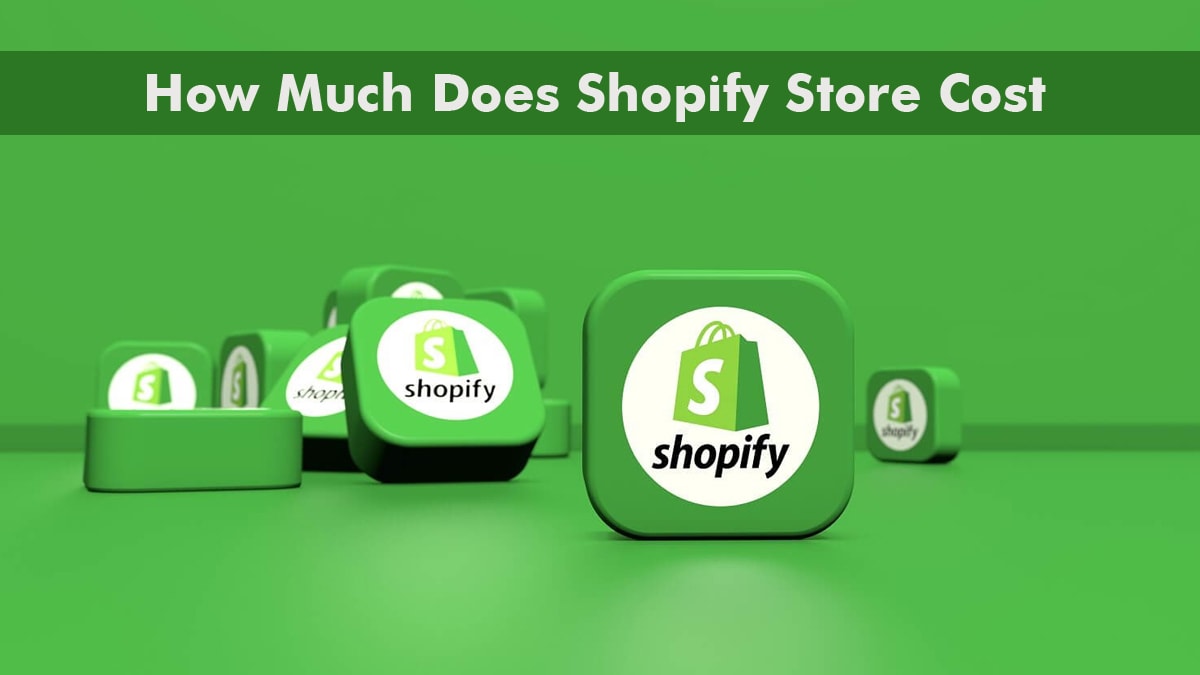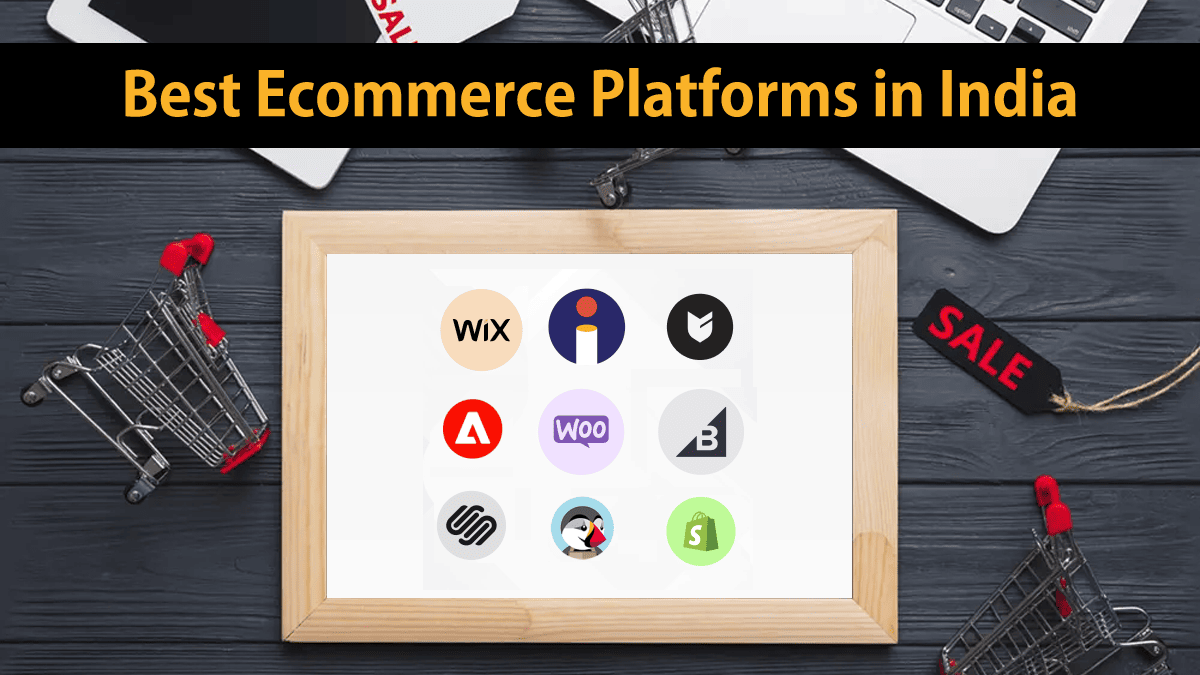If you’re planning to launch a new online store, you may be pondering which platform would best enhance your search engine rankings. When selecting an ecommerce platform for SEO, key considerations should be its capacity to optimize your site and boost its visibility on search engines.
Essential features include customizable URLs, meta tags, and sitemaps. Moreover, attributes such as platform speed, security, and mobile responsiveness should not be overlooked. With these factors in mind, we’ve curated a list of the six best ecommerce platforms for SEO currently on the market.
What are eCommerce Platforms?
An ecommerce platform is a comprehensive system enabling websites to manage their product inventory, track sales, and facilitate customer-retailer interactions.To optimize sales, companies must engage their customers where they are most likely to be found, and currently, that is predominantly online.
Successful businesses leverage online platforms as a core part of their operations, reaching customers where they spend their time. Ecommerce platforms empower you to sell your products online without the need for substantial capital. They provide the framework to establish a web presence, showcasing your offerings to potential customers. Beyond a storefront, these platforms manage orders, inventory, and payment processing.
When discussing your online store’s strategy with your eCommerce SEO provider, it’s crucial to ask for their recommendation on the best eCommerce platform that aligns with your SEO goals. Their expertise can guide you towards a platform that not only enhances user experience but also optimizes your site for search engines, ensuring maximum visibility and growth.
Types of eCommerce Platforms
Self-hosted
Self-hosted or on-premise ecommerce platforms make it necessary for ecommerce store owners to find a place to host their online store, handle the setup process, and frequently manage software updates on their own. Running an online store using self-hosted ecommerce software means that developers have to take care of the website and keep it updated, which can be expensive and take up a lot of time.
WooCommerce is an example. It is a plugin for WordPress and can be hosted through a third-party hosting provider. Alternatively, it can be hosted on your own servers if you understand the technical aspects. This option has advantages like having more control over your online store, being able to see your data more easily, and having a better understanding of how to keep your data safe. This route might be a good choice for very complicated businesses, but it can lead to more costs and less money earned.
Cloud-hosted
Cloud-hosted ecommerce platforms allow their customers to store their websites and data on servers that are located off-site, such as Amazon Web Services. This means that the cloud platform takes care of keeping the brand’s online services running smoothly all the time.
One good thing about using a cloud-based ecommerce platform is that it is cheaper because you don’t have to pay for servers or any maintenance or updates. You will get help from the hosting service provider when you need it. There are some downsides to using cloud hosting, such as having to pay an extra fee for a license on top of the hosting cost. You have less control over the servers and cannot customize them to fit your specific requirements.
Best eCommerce Platforms for Better Search Engine Rankings
Shopify

Shopify, launched in 2006, provides an alternative to building websites from scratch on platforms like WordPress and Drupal. It’s an ideal choice for beginners looking to launch their online business. Shopify simplifies the creation and personalization of your online store, offering an easier user interface than platforms like Magento, and eliminates the need for coding knowledge. Its user-friendly interface enables effortless adjustments to style using widgets, plugins, or products.
Shopify’s blogging tool serves as a potent means for disseminating fresh content to attract customers. It features an independent editor, and there’s also an option to upload your unique designs. For businesses seeking to monitor their website statistics, Shopify is a sound choice. Its integrated analytics feature, compatible with Google Analytics, helps track visitor activity.
However, Shopify does have limitations, notably in its lack of customization options. For instance, Shopify URL structures are quite rigid, making them challenging to modify across most pages.
Also Read: How Much Does Shopify Store Cost – How to Set It Up for Small and Medium Businesses
BigCommerce

BigCommerce was born out of Wayne Macey’s struggle with website creation, prompting him to assist others grappling with similar challenges. Leveraging the power of Ruby on Rails, BigCommerce offers impressive features that significantly enhance a website’s visibility on search engines.
This platform prides itself on its simplicity and flexibility, enabling even novices to create a website tailored to their business needs. BigCommerce comes equipped with numerous SEO-friendly features, including mobile optimization, the capability to redirect web pages, and the freedom to personalize your website’s URLs.
However, BigCommerce has often been criticized for its slow-loading sites, with some pages taking longer than five seconds to load. Such sluggish loading times can negatively impact SEO. Furthermore, cost considerations are significant. While the Standard package is relatively affordable at $29.95 per month, the Pro plan is considerably more expensive, costing ten times more for additional features.
WooCommerce

WooCommerce is a WordPress plugin designed to facilitate the creation of online stores, not a standalone platform. This makes it particularly beneficial for those already familiar with WordPress.
WooCommerce comes equipped with an array of tools that allow you to customize your website to best suit your business needs. It enables the integration of additional features that simplify the usage of payment services, social media, email marketing, and shipping, without any extra cost for functionalities.
WordPress is widely known for its user-friendly interface. If you encounter any issues, there’s an abundance of experts ready to lend a hand. Whether you prefer watching YouTube tutorials, participating in forum discussions, or reading blogs, there’s always a wealth of resources available to answer your queries.
The challenge lies in the time and effort required to sift through and find the plugins offering the specific features you need, given the vast selection available. It’s worth noting that having numerous plugins typically slows down website loading times.
Magento

Magento is a popular ecommerce platform established in 2008, offering an array of features beneficial for SEO, including sitemaps, XML, and integration with Google Analytics. Magento’s standout characteristic is its customization potential.
Magento is an open-source platform that allows you to tailor your website with unique features and capabilities. For instance, if your site requires bespoke checkout processes, Magento can accommodate your needs. This customization extends to altering the code for improving your website’s visibility in search engine results.
Nevertheless, this benefit can be a double-edged sword, especially for those lacking technical expertise. If coding isn’t your forte, creating and managing anything beyond a basic website could prove challenging. It’s common knowledge that Magento users often need to hire skilled developers for any significant alterations. Additionally, Magento’s usage can be costly, with the basic package exceeding $20,000. This price point renders it inaccessible for many ecommerce owners.
Also Read: 12 Best eCommerce Platforms for Startups in India
Wix

If you’re seeking to create a website with an integrated online store and prefer not to use WordPress, then Wix might be the optimal choice for you. This robust website builder provides beneficial features for online sales, including order tracking, automatic sales tax calculations, and recovery of abandoned shopping carts, available even on the most basic subscription plans.
Over a few short years, Wix’s ecommerce features have significantly evolved. The platform now offers options to link various channels, assist in recovering abandoned carts, provide dropshipping services, and facilitate on-demand product printing.
Among all the website builders we’ve explored, Wix provides superior on-page customer support during store creation. You can easily enrich your website with engaging videos and features by merely dragging and dropping elements, allowing you to create a site that aligns with your vision.
However, there are some limitations. Once your website is published, you can’t change the selected theme unless you employ their ADI. It also lacks features that might encourage customers to increase their purchases and lacks advanced automation functions. It is challenging to fully alter the template.
Squarespace

Established in 2003, Squarespace boasts modern templates and impressive design capabilities. It’s an excellent choice for businesses that primarily rely on a made-to-order model.
With Squarespace, you can swiftly ascertain shipping costs from major providers such as UPS, FedEx, and USPS. The platform is primarily renowned for its professional templates, user-friendly editor, and robust ecommerce tools that simplify the website-building process. All the necessary features for an online store are included in the package, conveniently organized in the side menu.
However, the design process on Squarespace can be challenging. It might take some practice to fully master. Once you have finalized your website design, you will gain access to a range of features such as marketing, inventory, social selling, search engine optimization (SEO), and analytics.
On the downside, Squarespace’s payment options and third-party integrations fall short compared to other ecommerce platforms. Payments are limited to Stripe and Paypal, and app compatibility is restricted to a few external tools.
How to Pick the Best Website Builder for Your Online Store?
If you’re just starting out with ecommerce platforms, it might feel like a lot to handle. These are the main things you should concentrate on when choosing.
Budget: Begin with something small and then increase it as you require. Though it may be difficult to find a strong free option, you can try out a product on its lower tiers to see if it suits your needs before investing a large sum of money.
Features: Your budget will decide the features that you can afford. All the website builders on this list for online shopping have the basic features. If there’s one thing that is extremely important to you, focus on that first and then consider the other features.
Expertise: Some apps are easier to use for beginners. Your time is important, so if you’re not very familiar with technology, make sure to find the one which you feel comfortable using.
Support: Do you feel confident fixing problems by yourself? If not, you should focus on getting help from support features.
Analytics: It is important to have reliable analytics as your business expands. Therefore, make sure that the platform you choose provides reports on your data in a way that you can easily understand, analyze, and make decisions based on it.
Final Thoughts
In conclusion, when choosing an ecommerce platform for SEO, make sure to carefully evaluate its SEO capabilities and choose one that best suits your business needs. There are lots of websites where you can sell things, but it can be hard to figure out which one is right for your business. In this post, we talked about 6 ecommerce platforms that are each special and unique in their own way. If you don’t feel sure about making your own online store, don’t be afraid to seek assistance from an experienced ecommerce developer.
FAQs
What features should I look for in an SEO-friendly eCommerce platform?
When choosing an SEO-friendly eCommerce platform, prioritize features like customizable URLs for better keyword targeting, responsive design to ensure mobile optimization, and fast loading speeds for improved user experience. Additionally, look for platforms that offer seamless integration with analytics tools, enabling you to track and optimize your SEO performance effectively.
How do these platforms integrate with other SEO tools?
Top eCommerce platforms typically support integration with popular SEO and analytics tools, allowing for easy monitoring of website performance and optimization of your SEO strategy. This includes compatibility with third-party plugins and extensions for enhanced customization and effectiveness in search engine visibility.
Can I switch my store to a different platform without losing SEO ranking?
Transferring your store to a new platform without losing SEO ranking is possible with careful planning. Key steps include preserving URL structures, setting up proper redirects, and transferring SEO metadata accurately. Continuous performance monitoring post-migration is essential to maintain search engine visibility.
Are there specific platforms better suited for small businesses?
Yes, certain eCommerce platforms are more suited for small businesses due to their user-friendly interfaces, cost-effectiveness, and essential built-in SEO tools. Platforms like Shopify, WooCommerce, and Wix Commerce offer a balance of simplicity and robust features, making them ideal for small businesses seeking to optimize their online presence without extensive technical expertise.


























 RSS Feeds
RSS Feeds